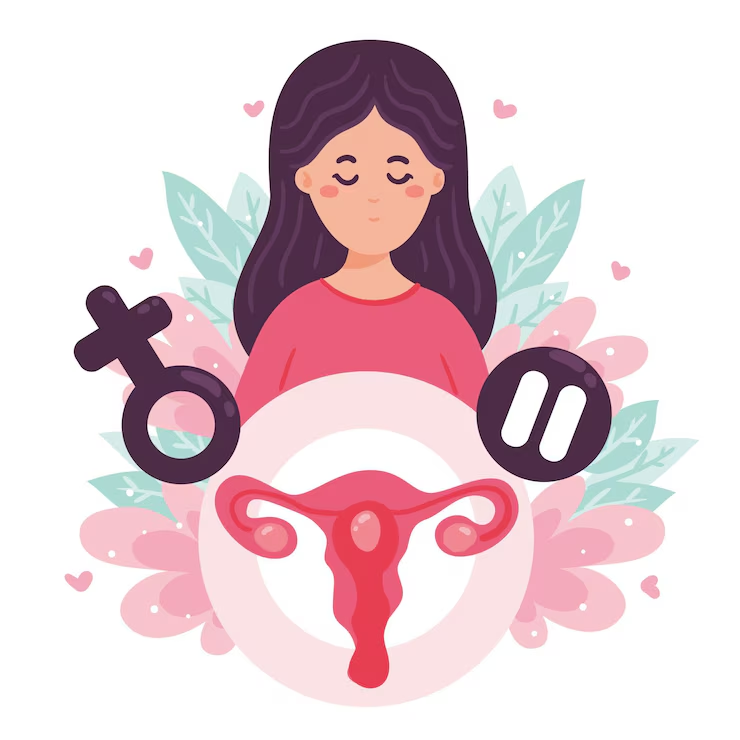When to consult a gynecologist

Your menstrual cycle is a powerful indicator of your overall reproductive health. By tracking it regularly, you can learn what's normal for your body — and more importantly, recognize when something feels off. While many menstrual symptoms are common and manageable, some signs and patterns shouldn't be ignored. Knowing when to consult a gynecologist is essential for maintaining both physical and emotional well-being, especially as it relates to intimacy and sexual health.
Here are 10 important signs or situations when you should consider consulting a gynecologist:
1. Irregular or Missed Periods
While it's normal for cycles to occasionally vary due to stress or lifestyle changes, consistently missed or irregular periods may signal hormonal imbalances, thyroid disorders, or conditions like PCOS (Polycystic Ovary Syndrome). If your cycle frequently shifts by more than 7–10 days or vanishes altogether, it’s time to seek professional advice.
2. Excessively Heavy Bleeding
If you're soaking through pads or tampons in less than two hours, passing large clots, or bleeding for more than 7 days, this could indicate menorrhagia (heavy menstrual bleeding), fibroids, endometriosis, or even bleeding disorders. Early diagnosis can prevent complications like anemia and fatigue.
3. Severe Pain or Cramps
While cramps are a normal part of menstruation for many, debilitating pain that interferes with your daily life is not. Intense pelvic pain could be a symptom of endometriosis, pelvic inflammatory disease (PID), or ovarian cysts. If over-the-counter pain relief isn’t helping, consult your gynecologist.
4. Spotting Between Periods
Unexpected spotting or bleeding between your periods should be evaluated, especially if it happens frequently. It can result from hormonal imbalances, infections, uterine polyps, or even early signs of more serious conditions. In some cases, it may also be related to birth control methods.
5. Changes in Vaginal Discharge
A noticeable change in the color, texture, or smell of vaginal discharge could be a sign of a yeast infection, bacterial vaginosis, or sexually transmitted infection (STI). It’s important not to self-diagnose or rely solely on over-the-counter treatments. A gynecologist can identify the cause and suggest appropriate treatment.
6. Pain During Intercourse
Sex should not be painful. If you're experiencing discomfort, especially deep pelvic pain during or after sex, it could be linked to conditions like endometriosis, vaginismus, or vaginal dryness caused by hormonal changes. A gynecologist can help identify the cause and suggest solutions that support your intimacy and comfort.
7. Concerns About Birth Control or Fertility
Whether you're starting, switching, or stopping birth control, a consultation can help you make informed choices. If you're trying to conceive and haven't been successful after 6–12 months (depending on age), or suspect fertility issues, it’s wise to see a gynecologist early.
8. Menstrual Cycle Affecting Your Mental Health
Premenstrual syndrome (PMS) is common, but if you're experiencing severe mood swings, depression, or anxiety around your period, it could be premenstrual dysphoric disorder (PMDD). PMDD is a serious condition that requires medical guidance, therapy, and sometimes medication.
9. Signs of Early or Delayed Puberty or Menopause
If puberty signs appear before age 8 or if menstruation hasn’t begun by age 16, medical evaluation is necessary. Similarly, symptoms of early menopause (before age 40) like hot flashes, night sweats, or cycle changes should prompt a visit to your doctor.
10. STI Testing or Post-Exposure Concerns
If you’re sexually active, regular STI screenings are vital—even if you're symptom-free. If you’ve had unprotected sex or are concerned about possible exposure to an infection, don’t delay your visit. Timely testing helps with early treatment and reduces the risk of complications.
Conclusion: Listen to Your Body
Your body communicates through symptoms—some subtle, some loud. While it's empowering to track your cycle and observe patterns, it’s equally important to know when to seek help. A gynecologist isn’t just for emergencies or pregnancy; they’re your partner in protecting your reproductive health, understanding your body, and supporting your sexual well-being.
Taking action early not only promotes physical health but can also ease stress, improve relationships, and help you feel more in control of your body.
Related Articles

Staying cool and hydrated

How long a normal cycle lasts

Understanding Your Menstrual Cycle: A Guide for Every Woman

What is safe and what to avoid

Cold foods that soothe nausea

Baby development at 11 weeks

Baby development at 10 weeks

How to use and clean menstrual cups